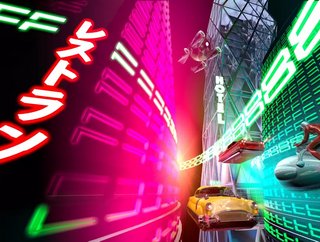5 minutes with Tom Pigott from Ludo.ai

As the gaming industry expands and developers look to artificial intelligence as an effective way to develop games, AI Magazine speaks to Tom Pigott about his company, Ludo.ai.

Can you tell me about Ludo.ai and your roles and responsibilities there?
I am the founder and CEO of Ludo.ai, a breakthrough AI-powered software platform that supercharges the creative process for game developers worldwide.
I have been in the technology space for over 15 years and have founded and invested in companies in the mobile gaming and VR spaces.
At Ludo, we use machine learning and natural language processing to develop game concepts for those who need them the most. Ludo was created purely to provide a service for game developers to help them with the brainstorming process. It can be very difficult for smaller studios to come up with game ideas that are unique and enjoyable, but Ludo is here to help with any creative barriers that developers might face.
The Ludo platform is constantly learning and evolving. In fact, it is built on a database of 1.2 million games, over 4 million images and is very agile.
Ludo.ai has a variety of features including an icon search feature which is facilitated by Ludo’s AI - giving users a detailed view of each icon, what filters are in place, and cross-referencing this across multiple online games storefronts.
Another feature that Ludo.ai has is a unique data centre, designed to keep creative teams informed on the latest gaming trends and what game audiences are getting excited about. This provides invaluable information to studios and developers looking to create exciting new game concepts by establishing what keywords, themes and genres are trending daily on a worldwide basis.
When asked to find a new game idea, based on intuitive keyword searches, Ludo returns immediately with multiple game concepts, artwork, images and icons that developers can rapidly work on to take to the next stage. This platform is used to kickstart the brainstorming process for game developers from research to ideation!
How does Ludo.ai utilise AI in its operations?
Ludo.ai uses machine learning and natural language processing to suggest ideas, review gaming trends, and even create unique icons on-demand - helping to inspire game developers and creators. AI is at the heart of Ludo’s operations; without it we would not be able to provide a service to game developers where they are able to quickly analyse the most recent gaming trends to use as inspiration to create their next hit game. Ludo’s AI features include:
- Image generator
- Game ideator
- Current trends
- Icon and image generator (currently in beta testing)
In what ways can AI transform the gaming industry?
AI-powered software tools for game developers will become the norm in the years to come. It is similar to how the personal computer became the indispensable productivity tool for office workers everywhere in the 80s and 90s. Game developers will use AI-powered software to develop new game concepts and environments, generate screenshots and videos of the game and ultimately be able to create complex game mechanics that are unique for each player.
How do you support your customers with their use of AI?
We support our customers who are using our AI-powered software in a variety of ways. We are actively working to build a thriving community on Discord for our game developers and gamers to ask questions, resolve issues and just relax and have fun. We are active on social media and can respond quickly on a number of platforms to users who have questions. We also have created a number of onboarding video tutorials that easily explain how to use our tools.
What can we expect from Ludo.ai and its use of AI-enabled technology in the future?
Ludo.ai expects to continue to be a pioneer in the development and use of AI-powered creative tools for the gaming and digital entertainment industries. There are new machine learning models that are regularly being tested and released, with one exciting area being computational creativity where new tools support designers with interactive media. In the future, we can expect to see machine learning tools that will be able to help create realistic and relevant game artwork and even videos.






